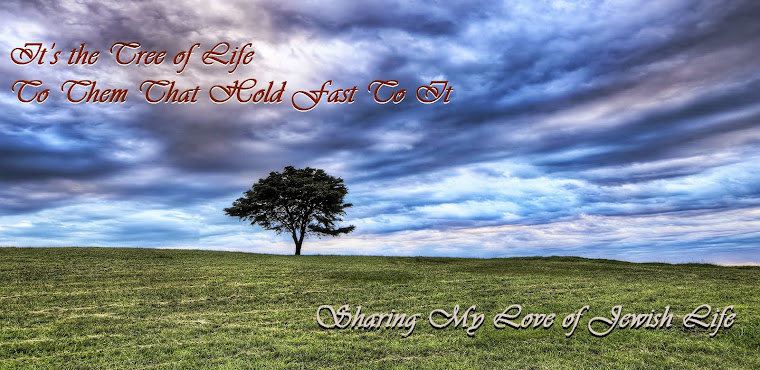x
Thursday, May 28, 2020
Covid Shavuos Personal Reflections
x
Friday, May 15, 2020
Time and Community (Behar)
This week’s Dvar Torah is about keeping track of time and the Torah’s overall goal of personal accountability. The Torah states: “You shall count off seven weeks of years…seven times seven years” (Vayikra 25:8). You shall count off - Is it odd that the instructions are so obscure? When I stopped and thought about it, I realized I would have expected the instruction to be more objective, something like: and it will be after seven weeks of years… But this makes one think about time. In the Torah, as noted by Rabbi Sacks pointed out, we have a lunar cycle (months) and a solar cycle (seasons) and then we have Shabbat, which is not attached to any celestial cycle. Shabbat is the seventh day, the day we count to from the end of one into the next. Day One is Sunday, Day Two is Monday, and etc and so forth.
The interesting thing about Shabbat is that it is up to us to count those days, to pay attention and remember what day it is. This is the heart of the hypothetical conversation of what does one do if one is not certain what day it is (if one is cut off from the community…the answer is, of course, ask your local Orthodox Rabbi).
When you think about it, there are actually quite a number of counting exercises in the Torah. We count for Shabbas. We count the Omer every year. We count the years til Shemittah. And we count for the Yoval.
To be quite honest, this can be challenging on one's own. However, much of the challenge is alleviated by living in a larger community that works together so that we can all keep track of our time-mitzvos. If I lose track of the Omer, I am surrounded by people I can ask. As Shemitta year approaches, I get announcements and updates.
Hashem expects us to be able to take responsibilities for ourselves, so he gives us responsibilities. But Hashem also knows that the best way for us to meet those responsibilities is as a team, a community, and, interestingly enough, He gives us guidelines for being a good team throughout Parshas Behar, the very parsha in which He instructs us of our longest counts (Shemitta and Yoval). Here are some of the significant pasukim in Parshas Behar:
1) “When you sell property to your neighbor, or buy any from your neighbor, you shall not wrong one another” (25:14).
2) “Do not wrong one another but fear your God: for I the Lord am your God” (25:17).
3) “If your kinsman, being in straits, comes under your authority, and you hold him as though a resident alien, let him live by your side. Do not extract from him advance or accrued interest, but fear your God. Let him live by your side as your kinsman” (25:35-36).
Our society is made up of a great swath of people. Some people are very on top of things, so to speak. They have no trouble keeping track of time or objects. Others are more, shall we say, broadly focused, but that same laxness in time keeping may make them easier among people. The point is, we are one nation, one people, one collective group, and Hashem helps us stay that way by reminding us that the land is our privilege and our responsibility, and the only way to keep the privilege of our land is by taking responsibility for its mitzvot which occurs when we, klal Yisrael, think of ourselves as a wonderfully single whole, a complete unit.
As we head into Behar-Bechukosai, let us remember that it is our bond as a community that is our strength and lets us continue to work hard to be present for one another.
Friday, May 8, 2020
Desecration and Curses (Emor)
The final verses of Chapter 22 of Vayikra, at the heart of this week’s parashas Emor, seem, in some ways, to fold in upon themselves. “You shall not profane My holy name, that I may be sanctified in the midst of the Israelite people—I am the Lord who sanctifies you, Who brought you out of the land of Egypt to be your God, I the Lord” (Vayikra 22:32-33). It would seem obvious that in a place where God’s name was being profaned the ability to truly sanctify God’s name would be greatly hampered.
Friday, May 1, 2020
Halfway Though the Year (Acharei Mos-Kedoshim)
The beginning portion of the double Parsha Acharei Mos-Kedoshim presents the details of the Yom Kippur service. This discussion of Yom Kippur has only a scant mention of fasting (“afflicting oneself”) and refraining from work, but rather provides a detailed account of the actions required by the Kohein Gadol. For those not immediately familiar, this was the service most relate to for having two goats. One goat would be chosen by lot to be “for Hashem,” and the other would be cast off a mountain into the wilderness of Azazel. But the service itself was far more intricate. There were personal and communal sacrifices. The Kohein Gadol would enter the Holy of Holies, the only time of the year he could do so. He would bring burning incense into the covering of the Aron Kodesh. He would sprinkle the blood of different offerings onto the cover of the Aharon Kodesh, the Tent of meeting, and the altar. Clearly, there are many, many details – 27 verses of precise instructions.
